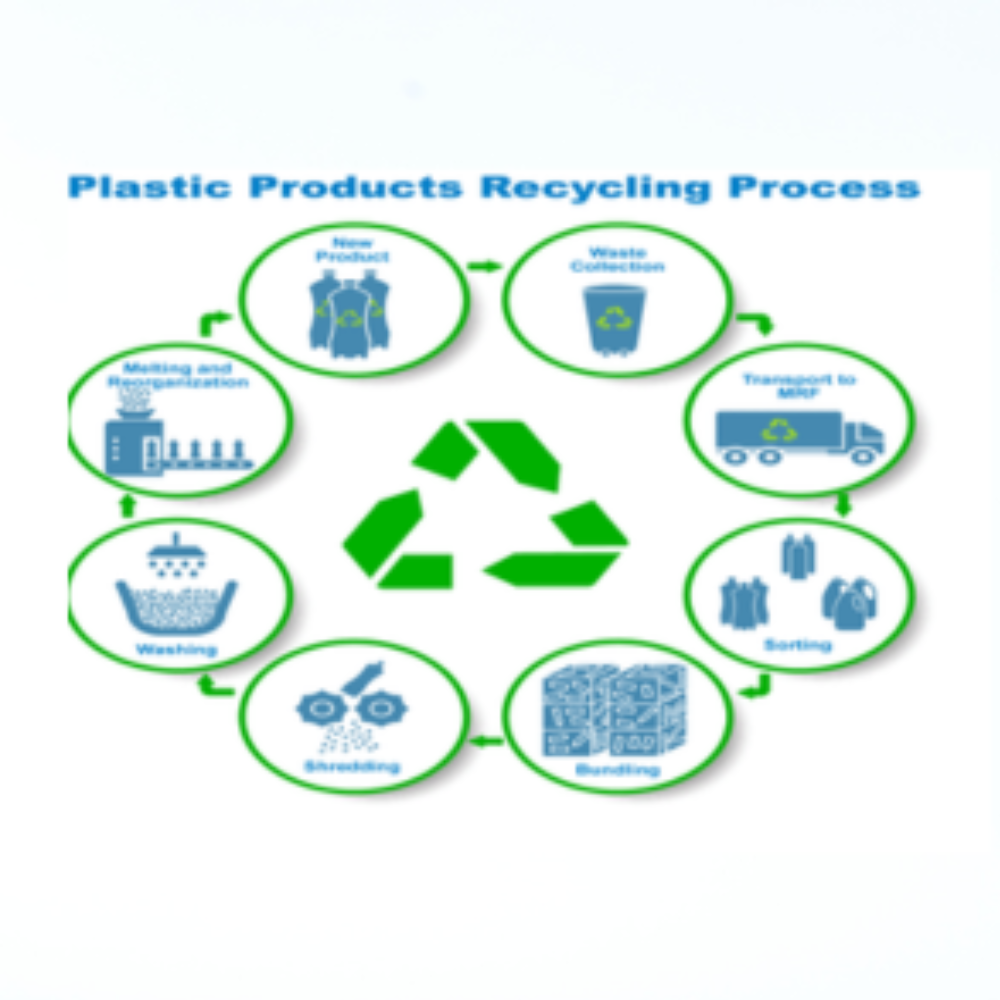
HBNS Recycling
Plastic recycling is the process of recovering scrap or waste plastics and reprocessing them into useful products. By reducing the volume of plastic waste sent to landfills and oceans, it helps conserve natural resources, lower carbon emissions, and protect ecosystems. Recycled plastics are used in manufacturing furniture, packaging materials, textiles, automotive parts, construction products, and household goods. Advanced recycling technologies now enable the production of food-grade recycled plastics, further reducing reliance on virgin plastic production.
E-waste recycling involves recovering valuable materials like gold, silver, copper, rare earth elements, and high-quality plastics from discarded electronics such as computers, mobile phones, TVs, and appliances. Proper recycling prevents hazardous substances like lead, mercury, and cadmium from contaminating soil and water.
In essence, plastic and electronic recycling transforms waste into a valuable resource stream, driving sustainability, protecting the environment, and fueling the circular economy. HBNS plan to collect the material from source direct to the processing center.